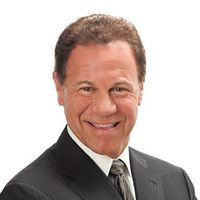Pearls of Wisdom for 401(k) Investors
Proper investing is crucial to your long-term retirement success. That means accepting volatility but managing risk.


Profit and prosper with the best of Kiplinger's advice on investing, taxes, retirement, personal finance and much more. Delivered daily. Enter your email in the box and click Sign Me Up.
You are now subscribed
Your newsletter sign-up was successful
Want to add more newsletters?

Delivered daily
Kiplinger Today
Profit and prosper with the best of Kiplinger's advice on investing, taxes, retirement, personal finance and much more delivered daily. Smart money moves start here.

Sent five days a week
Kiplinger A Step Ahead
Get practical help to make better financial decisions in your everyday life, from spending to savings on top deals.

Delivered daily
Kiplinger Closing Bell
Get today's biggest financial and investing headlines delivered to your inbox every day the U.S. stock market is open.

Sent twice a week
Kiplinger Adviser Intel
Financial pros across the country share best practices and fresh tactics to preserve and grow your wealth.

Delivered weekly
Kiplinger Tax Tips
Trim your federal and state tax bills with practical tax-planning and tax-cutting strategies.

Sent twice a week
Kiplinger Retirement Tips
Your twice-a-week guide to planning and enjoying a financially secure and richly rewarding retirement

Sent bimonthly.
Kiplinger Adviser Angle
Insights for advisers, wealth managers and other financial professionals.

Sent twice a week
Kiplinger Investing Weekly
Your twice-a-week roundup of promising stocks, funds, companies and industries you should consider, ones you should avoid, and why.

Sent weekly for six weeks
Kiplinger Invest for Retirement
Your step-by-step six-part series on how to invest for retirement, from devising a successful strategy to exactly which investments to choose.
Since 1998, the percentage of Fortune 500 companies offering defined benefit plans has fallen from 45% to just 5%. This places more responsibility in the employee’s hands. Because they do not receive a defined monthly payment in retirement, they rather must save, invest and then make wise withdrawals to live off their retirement savings.
So, it’s crucial for people to understand proper investing for the long term and how to use tools, such as 401(k)s and IRAs.
One of the most memorable quotes I’ve heard from someone who had turned 65 years old and did a poor job saving for retirement was, “I didn’t realize how fast I would get to 65.” This is a reality for many people, and they face this epiphany at various stages in their lives. Some realize the importance of saving for retirement and begin with their first job, while others wait until age 55 and still have hopes to retire at 65.
From just $107.88 $24.99 for Kiplinger Personal Finance
Become a smarter, better informed investor. Subscribe from just $107.88 $24.99, plus get up to 4 Special Issues

Sign up for Kiplinger’s Free Newsletters
Profit and prosper with the best of expert advice on investing, taxes, retirement, personal finance and more - straight to your e-mail.
Profit and prosper with the best of expert advice - straight to your e-mail.
While saving for retirement is an important first step, investing properly is crucial to allow your money to compound over time. Managing money for clients, I have seen the problem of people not knowing how to invest their 401(k) monies. They don't have anyone they can turn to for investment advice because the company responsible for the investment portion of the plan generally just wants to collect the fees off contributions. If you're lucky, you'll get sent to an information website.
Get over your fear of volatility
With little investment knowledge, the 401(k) participant is then asked to choose the investments on their own. This leads many to think about their personal risk tolerance. The problem here is many people do not understand the difference between loss of principal and volatility. The stock market can be a volatile investment in the short term, but longer term it can provide great returns. It is important to know that when the market drops, it is not a necessarily bad thing because this means you get to buy more shares at a cheaper price. Who doesn’t love a good sale? If investors do not do silly things by investing in risky companies with high debt and expensive valuations, they will be able to endure volatility without having a serious risk of losing principal.
By associating volatility with risk, many investors are nervous to enter the stock market. This may lead a 30-year-old who believes they are risk averse to have little invested in higher-performing assets and more in safe assets, such as a money market account. While the investor may feel emotionally better about not having to witness the volatility, financially they are destroying their future. As savings sit in a money market account, inflation is eating into them and deteriorating their real net worth.
But don’t go crazy with your money, either
On the other hand, investors who begin saving closer to retirement may feel the need to take more risk to catch up on lost time. This leads the investor to look at risky assets such as small-cap stocks and emerging markets. While there is potential reward there, investors are involving themselves in areas they know little about and that have significant potential downside. Often, we have seen investors go this route in hopes of big returns, only to witness their savings dwindle due to the large risks.
When it comes to investing retirement funds, it is important to educate yourself on what you are actually invested in. You do not have to become the next Warren Buffett, but a general understanding will help appease some of your emotions and hopefully deter you from making poor investment decisions.
- Look for investments that provide a good return, without taking on too much risk.
- Understand that you are investing this money for the long term and that volatility is not a bad thing.
- Realize that even if you are near retirement, you still have a long-term horizon, so it is important to properly invest throughout your retirement years.
For 401(k) investors, I recommend looking for a good value-based investment fund. This means the fund will look at the fundamentals of the companies it owns and look at the valuation ratios for the sales, earnings, book value and cash flow to make sure they are getting a good value. While value does not outperform every single year, over the long term it has produced the best results. Going back to 1927, value stocks have produced an average annual return of 13.5%, far exceeding the performance of the S&P 500, which saw an average annual return of 9.9%.
By properly saving and investing for retirement, investors can get to the years they worked their whole lives for and live comfortably off the nest egg they built.
Profit and prosper with the best of Kiplinger's advice on investing, taxes, retirement, personal finance and much more. Delivered daily. Enter your email in the box and click Sign Me Up.

Brent M. Wilsey, President of Wilsey Asset Management, is a highly regarded registered investment adviser and a seasoned financial strategist with over 40 years of experience. He offers day-to-day investment guidance to both individual investors and corporations. Having opened his LPL branch office in 1992, currently Wilsey's firm manages over $200 million in assets. Reach him online at www.wilseyassetmanagement.com.
-
 Dow Adds 1,206 Points to Top 50,000: Stock Market Today
Dow Adds 1,206 Points to Top 50,000: Stock Market TodayThe S&P 500 and Nasdaq also had strong finishes to a volatile week, with beaten-down tech stocks outperforming.
-
 Ask the Tax Editor: Federal Income Tax Deductions
Ask the Tax Editor: Federal Income Tax DeductionsAsk the Editor In this week's Ask the Editor Q&A, Joy Taylor answers questions on federal income tax deductions
-
 States With No-Fault Car Insurance Laws (and How No-Fault Car Insurance Works)
States With No-Fault Car Insurance Laws (and How No-Fault Car Insurance Works)A breakdown of the confusing rules around no-fault car insurance in every state where it exists.
-
 For the 2% Club, the Guardrails Approach and the 4% Rule Do Not Work: Here's What Works Instead
For the 2% Club, the Guardrails Approach and the 4% Rule Do Not Work: Here's What Works InsteadFor retirees with a pension, traditional withdrawal rules could be too restrictive. You need a tailored income plan that is much more flexible and realistic.
-
 Retiring Next Year? Now Is the Time to Start Designing What Your Retirement Will Look Like
Retiring Next Year? Now Is the Time to Start Designing What Your Retirement Will Look LikeThis is when you should be shifting your focus from growing your portfolio to designing an income and tax strategy that aligns your resources with your purpose.
-
 I'm a Financial Planner: This Layered Approach for Your Retirement Money Can Help Lower Your Stress
I'm a Financial Planner: This Layered Approach for Your Retirement Money Can Help Lower Your StressTo be confident about retirement, consider building a safety net by dividing assets into distinct layers and establishing a regular review process. Here's how.
-
 The 4 Estate Planning Documents Every High-Net-Worth Family Needs (Not Just a Will)
The 4 Estate Planning Documents Every High-Net-Worth Family Needs (Not Just a Will)The key to successful estate planning for HNW families isn't just drafting these four documents, but ensuring they're current and immediately accessible.
-
 Love and Legacy: What Couples Rarely Talk About (But Should)
Love and Legacy: What Couples Rarely Talk About (But Should)Couples who talk openly about finances, including estate planning, are more likely to head into retirement joyfully. How can you get the conversation going?
-
 How to Get the Fair Value for Your Shares When You Are in the Minority Vote on a Sale of Substantially All Corporate Assets
How to Get the Fair Value for Your Shares When You Are in the Minority Vote on a Sale of Substantially All Corporate AssetsWhen a sale of substantially all corporate assets is approved by majority vote, shareholders on the losing side of the vote should understand their rights.
-
 How to Add a Pet Trust to Your Estate Plan: Don't Leave Your Best Friend to Chance
How to Add a Pet Trust to Your Estate Plan: Don't Leave Your Best Friend to ChanceAdding a pet trust to your estate plan can ensure your pets are properly looked after when you're no longer able to care for them. This is how to go about it.
-
 Want to Avoid Leaving Chaos in Your Wake? Don't Leave Behind an Outdated Estate Plan
Want to Avoid Leaving Chaos in Your Wake? Don't Leave Behind an Outdated Estate PlanAn outdated or incomplete estate plan could cause confusion for those handling your affairs at a difficult time. This guide highlights what to update and when.